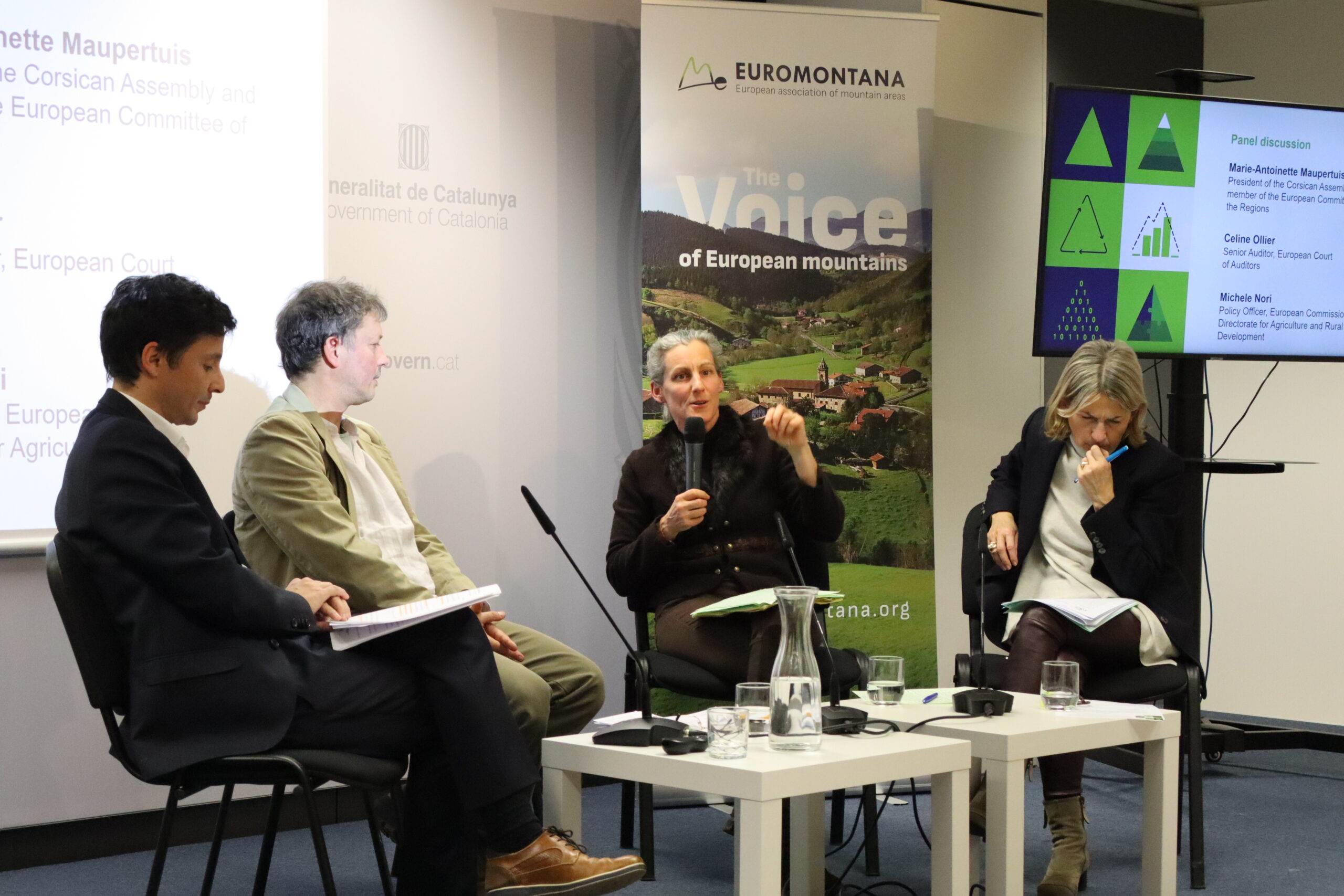The Puigcerdà Declaration calls for greater support to ensure a vibrant future for mountain economies
On 11 December, International Mountain Day, Euromontana and the Government of Catalonia presented the Puigcerdà Declaration in Brussels, calling for greater political support for mountains in the face of the challenges ahead.
Amplifying the voice of mountain communities at European level
Yesterday, the Puigcerdà Declaration was presented to European stakeholders by Víctor Puga López, Secretary of Territory, Urbanism and Urban Agenda of the Government of Catalonia, and Laura Gascón Herrero, President of Euromontana & member of the Coordination Group of the European Rural Pact. The Declaration is the result of a co-construction process that took place with mountain communities during the 13th European Mountain Convention, held in Puigcerdà from 15 to 18 October and co-organised with the Government of Catalonia and CREAF.
The Puigcerdà Convention focused on proposing practical solutions and actionable recommendations to increase the prosperity, resilience and sustainability of mountain economies. With the start of the new European mandate, ‘Euromontana is more determined than ever to bring the voice of the mountains to policy makers to ensure that the needs of our regions are recognised’, said Laura Gascón Hererro, President of Euromontana.

Ensuring a vibrant future for mountain economies
The Puigcerdà Declaration provides an overview of the opportunities and key sectors that have the potential to drive mountain economies – from agriculture to tourism, circular economy or entrepreneurship – and puts forward proposals to give them a vibrant future.
A policy panel discussed some of the proposals and recommendations to support some of these sectors. These include policy recommendations to ensure fairer remuneration for farmers, better recognition of the ecosystem services provided by agro-pastoral activities and making mountain products more accessible. Reacting to the Declaration, Michele Nori, policy officer at the European Commission’s DG AGRI, stressed that mountains, as regions where agriculture is the backbone of local economies, must be better supported by the future Common Agricultural Policy.
Another key sector for mountains is tourism, for which the Declaration highlights the need for a just transition policy that supports mountains in the face of climate change, including for jobs in vulnerable sectors such as winter tourism. In response, Céline Ollier, Senior Auditor, European Court of Auditors, highlighted the current gaps in adaptation in mountain areas and stressed the need to climate-proof cohesion policy and enhance coherence across public policies.
Finally, the Declaration sets out recommendations for instruments and policies to be maintained or further developed to ensure a viable and sustainable future for the mountain economies of tomorrow. These include the Rural Observatory, which should be further developed, or rural proofing. Above all, the Declaration calls for science-based and placed-based policies to respond as effectively as possible to the specific challenges of mountain areas. On this point, Marie-Antoinette Maupertuis, President of the Corsican Assembly and member of the European Committee of the Regions, stressed the importance of the place-based approach and the need to respect the subsidiarity principle. In her view, it is essential in the current context to ensure that “EU policies and budgets are rural-proofed upstream, evaluated downstream and adapted to local needs”.
The Puigcerdà Declaration features some seventeen key recommendations for local economies and will be Euromontana’s roadmap for bringing the voice of the mountains to this new European mandate.